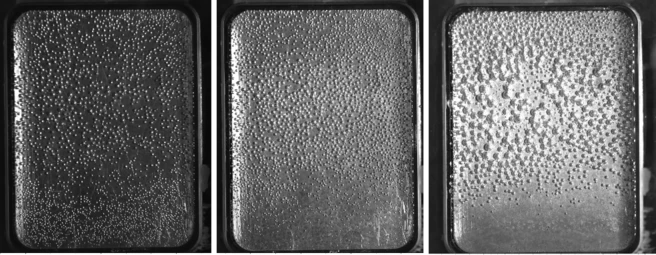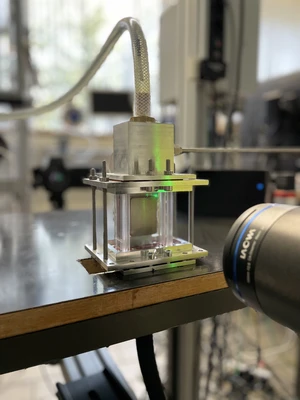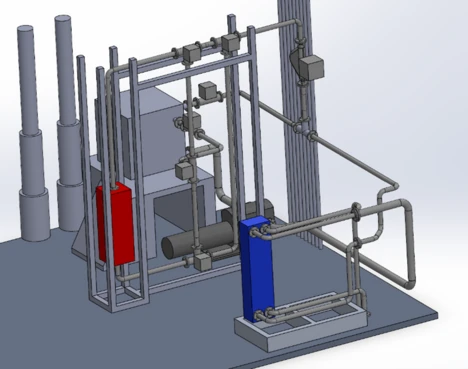The Thermal Hydraulics Laboratory supports the Applied Nuclear Technologies program through advanced experimental research in fluid dynamics, boiling phenomena, and reactor component performance. Our goal is to generate data that strengthens nuclear system design, supports safety analysis, and enables the development of next-generation reactor technologies.
Our core research is carried out using custom-built thermal-hydraulic test loops designed to reproduce reactor-relevant conditions. These loops enable systematic investigation of flow behavior, heat transfer, and structural effects under controlled conditions.
The small-scale LOKI loops are used for validation experiments and thermal-hydraulic investigations across a wide range of flow and heat-transfer regimes.
In conjunction with state-of-the-art high-speed cameras and advanced three-dimensional Particle Tracking Velocimetry (3D-PTV), they allow us to reconstruct velocity and acceleration fields and support studies of nucleate boiling, bubble detachment dynamics, flow instabilities and two-phase behavior, as well as surface degradation effects.
Commissioning in Progress
In an effort at eliminating the use of Highly Enriched Uranium, FRM II is actively working towards the conversion of its fuel element. Preliminary results showed that the conversion of these high-power research reactors to a lower enriched fuel could significantly benefit from the use of advanced Computational Fluid Dynamics (CFD) calculations, as those open a larger parameter frame compared to the more traditional, 1D sub-channel calculations. Therefore, it is critical to build a validation and verification basis of CFD codes and analysis, as it is anticipated that they will be integrated in a future conversion scenario.
THOR simulates the thermal-hydraulic parameters of an FRM II cooling channel and provides an exchangeable test section. This allows a high degree of flexibility in testing various geometries and heating profiles. Once commissioned, THOR will significantly expand the laboratory’s research capabilities, enabling multi-parameter studies of heat transfer and turbulence phenomena.


